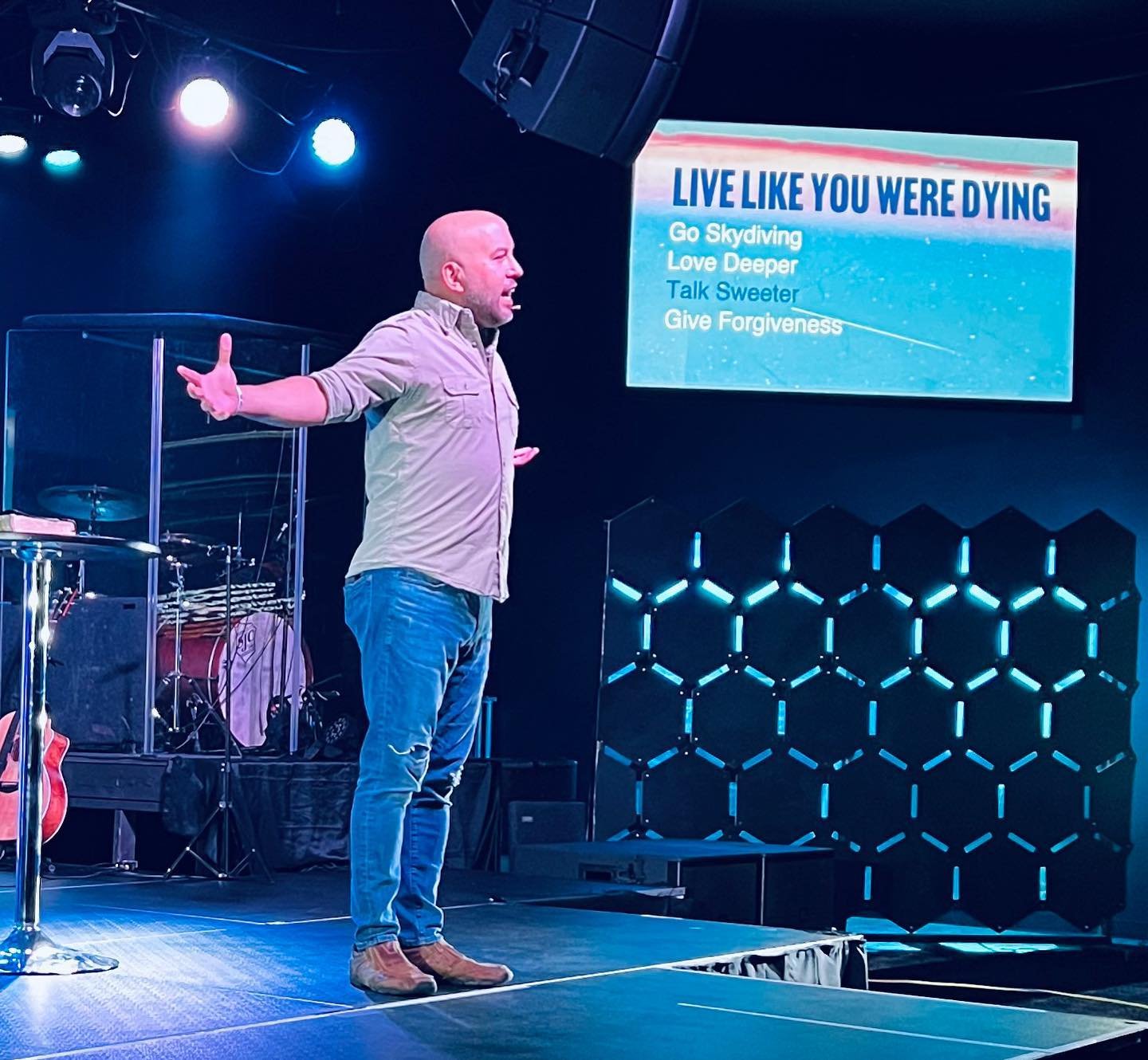"You know what intimacy is? It's into-me-you-see.” - Martin de Maat

The original pioneers of improv-comedy in the 1950s included now-famous names like Alan Arkin, Mike Nichols, and a very young Joan Rivers. A famous story from the annals of Second City recounts how Rivers was once on stage and asked for an audience suggestion for a scene. When "marriage" was shouted back, Joan initiated the scene by saying, "I want a divorce." Joan’s on-stage partner said Yes, And to her initiation by saying, “What about the children?” Joan shot back,“We don’t have any children!”
Of course, there was a big laugh from the audience, but Rivers' cheap laugh set up her partner—and the scene—for failure. Her denial of his reality killed the scene and ended the team’s collaboration. She destroyed more than future possibilities in the scene; Rivers denied and destroyed the trust between partners.

It's time to make a Holy Shift in your leadership through a crucial comedy technique. I want you to Think Ensemble.
Teamwork makes the dream work. In the comedy world, you are taught to always, always, always make your partner look good. It’s not about sharing the spotlight; it is about moving the spotlight completely off of yourself and more brightly onto everyone else on the stage. It’s the comedic equivalent of valuing community. Improvisation is about serving your partner instead of being out there and showing off.

Have you ever watched an episode of Whose Line Is It Anyway? Have you noticed how the comics don’t have time to sit down, write out their ideas, memorize lines, re-write lines? It’s because they Start with a Yes and build on the idea by thinking ensemble.
You don’t know what is going to come out of your partner’s mouth—whatever they say in an improv scene instantly becomes the reality of the scene. Therefore, you want to build a net of trust to leap into—and that trust is knit together by the knowledge that you will always support one another, no matter what.
When you think ensemble, your church will build effective teams, break down silos, and foster creativity. Ensemble gives you an instantaneous advantage with different situations; the outcome isn’t dependent on one lone person. Thinking ensemble strengthens the Body.

Think of an ensemble as a baseball team. You don’t want to load your roster with all sluggers. You need different points of view and complementary strengths. Diversity is the key to thinking ensemble. The enemies of thinking ensemble are the need to be right, stealing focus, and appearing to be in control. Jesus’ disciples were always short-circuiting things when they felt the need to be right (Peter), tried stealing the focus (James and John), or were appearing to be in control (Judas the treasurer).
Ensemble is hard, but rewarding. When nobody cares who gets the credit, your team is able to explore and heighten new ideas together. When you think of winning sports teams, the championship is won not by a single athlete, but by a team of players working together. The burden is shared and the win is shared. When you think ensemble, you are freed to walk into a meeting and bring a brick, not a cathedral.

RELATIONSHIPS ARE NOT DISPOSABLE IN A FACEBOOK WORLD
Thinking ensemble looks easy on paper but is hard in real life. Why? Because we live in the time of Facebook and Twitter, two mighty platforms that can amplify messages—and amplify grudges—if handled immaturely. And believe me, social media can be like crack for immaturity addicts.

I have a theory: we never really leave middle school. That short season of life where the awkwardness of adolescence collides with our first tastes of personal responsibility follows us through life. Many men are still that boy in the junior high locker room comparing and many women walk through life fearful of others’ opinions. We have the popular kids (Hollywood), the geeks (ComicCon), the need for cooler toys (Amazon), and petty schoolyard fights (political races). We never really leave middle school. Social media simply amplifies our inner middle school angst.
Angry at someone? Technology doesn’t force you to seek reconciliation; you can simply “UnFollow” them. They won’t even know. Facebook has made relationships disposable, just another product to consume and spit out.
That’s why thinking ensemble is so explosive: relationships are vital toward forward progress. When you sign up to be a leader, you signup for conflict. Thinking ensemble directs you to walk toward the people there is conflict with, not away from them (you can’t support someone you’re not talking to). In the Bible, we read these words about conflict:
For we do not wrestle against flesh and blood, but against the rulers, against the authorities, against the cosmic powers over this present darkness, against the spiritual forces of evil in the heavenly places.” Ephesians 6:12 (ESV)
The Gospel reminds us that we are messy humans who easily fall into sin. Our flesh can sometimes seek to judge before our spirit listens. But Ephesians 6:12 reminds us that if it has flesh and blood, it is not your enemy. If you are holding anger toward someone or unwilling to revisit boundaries you've set up, it's time to wake up to the fact that that person is not your enemy. They are a human being created in the image of God whom Jesus already died for and the Father has already declared to be not guilty.
Reconciliation is not something you can put off. Biblically, it is always for today. As I gently remind our church periodically, the Internet is an online tool for building community, but should never be used for tearing it down. Here is an axiom to live by: if you ever feel wronged by someone (a fellow Christ follower, a church staff member, a pastor, etc.), posting your grievance online is never the correct course of action. In fact, if someone is willing to attack another person through a blog hiding behind flickering pixels but refuses to meet with them in person, we have a word for that: coward.

EDITOR’S NOTE: The has been an excerpt from my book, Holy Shift. I lead what has been recognized as one of America’s fastest-growing churches, LifeChurchMichigan.com. Part of my training was at The Second City in Chicago.
Holy Shift is about unleashing contagious enthusiasm on church leadership teams; equipping leaders to leverage laughter and passion; and creating sustainable momentum in reaching younger crowds for Christ.
Order copies for your team now on Amazon or ChurchLeaders.com!














